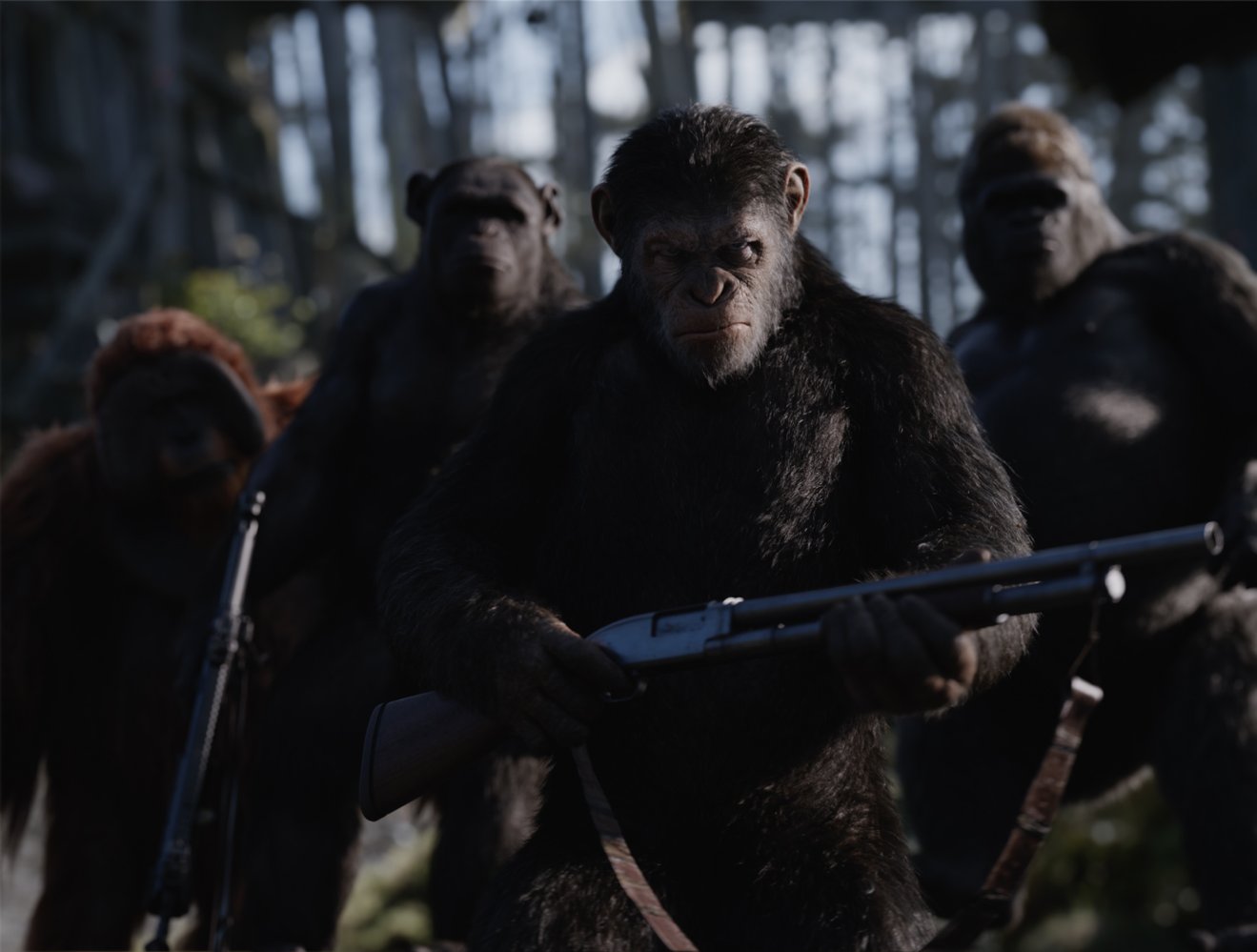Perhaps today’s world leaders could learn a thing or two from their fellow primates in War for the Planet of the Apes, the clever and sophisticated sequel that continues to take its franchise in thrilling new directions.
What appears to be a slick effects-laden action epic on the surface is layered with sociopolitical subtext, intriguing character dynamics, and shrewd contemporary relevance — all without abandoning its science-fiction roots.
This third installment essentially picks up where its predecessor left off, on a post-apocalyptic Earth beset with hostility between humans and apes. With diplomacy having gotten nowhere due to sabotage on both sides, a showdown for planetary supremacy seems inevitable.
The rebellious simians are led by the genetically engineered Caesar (played by Andy Serkis), whose distrust of Homo sapiens hearkens to the protection of his own family. So despite his desire for a peaceful coexistence, Caesar’s first encounter with a ruthless colonel (Woody Harrelson) brings out his rage.
It isn’t long before Caesar, accompanied by a small but loyal handful of allies, separates himself from the rest of his species on a vigilante quest to settle the score. However, by the time he reaches a military compound ready to engage, the ethical stakes have changed.
As with the previous film in the series, Dawn of the Planet of the Apes (2014), this effort achieves a seamless balance between its obligatory visual-effects showcases — especially those that open and close the film — and the quieter, character-driven moments.
Of course, it helps that technology has allowed for more emoting from the apes that allow for long stretches with little dialogue, since only Caesar can speak in complete sentences among the apes, and the rest primarily communicate via their own sign language.
It takes a while to find its rhythm. Yet returning director Matt Reeves, who also co-wrote the screenplay, crafts a primal yet intimate conflict between man and beast that boils down to a survival of the fittest, except that both sides are internally vulnerable and there are no clear-cut heroes and villains.
Ultimately, War for the Planet of the Apes is more about psychological conflict than battles on the front lines, and about the reluctant necessity of war sometimes to achieve lasting peace. That’s hardly a groundbreaking perspective, but the fresh presentation here offers both cerebral and visceral thrills.





